ABOUT
OUR FOCUS
Development and application of innovative techniques for biomarker in human diseases.
We believe that utilizing molecular imaging tools we can uncover abnormalities in cell metabolism and assess treatment efficacy.
OUR APPROACH
Combining principles from bioengineering, chemistry, and physics, we tackle biological challenges through innovative solutions. Application of Magnetic Resonance (MR) molecular imaging methods to investigate biochemical pathways and in vitro, in vivo and in innovative in bioengineered chip systems.

OUR METHODS
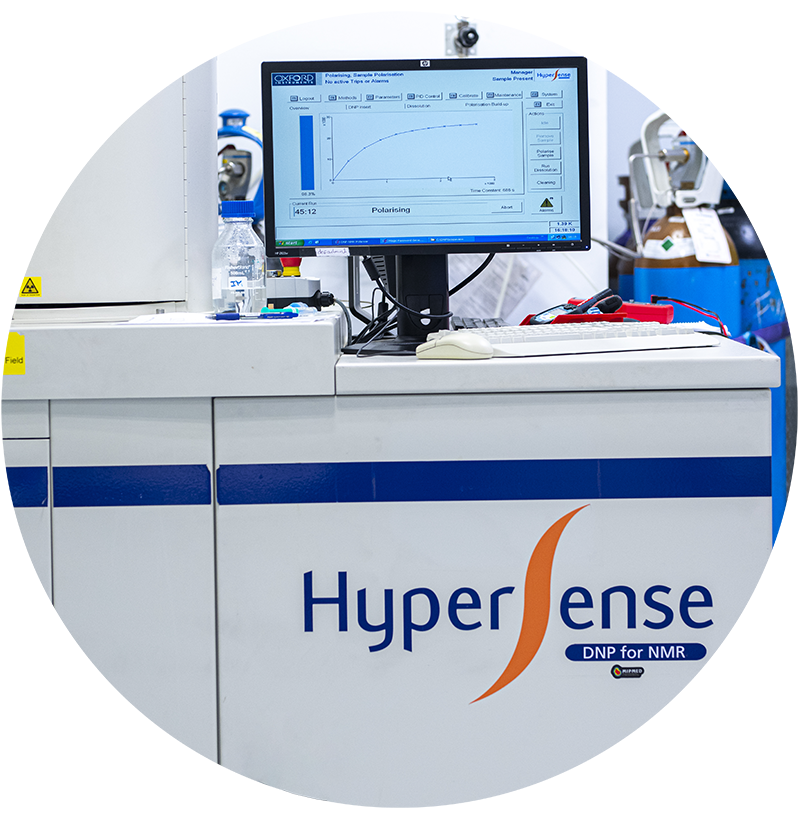
Hyperpolarised NMR (HP-NMR)
At the forefront of molecular imaging, our team specializes in hyperpolarized MR techniques, which amplify NMR signals over 10,000 times. This advancement allows real-time, non-invasive observation of molecular processes within a broad spectrum of biological systems, offering unprecedented insights into dynamic biological phenomena in real time. In our group we work with two HP methods: dissolution Dynamic nuclear polarization (dDDNP) and Parahydrogen Induced Polarization (PHIP).
Magnetic Resonance (MR) Imaging
Building upon the established clinical utility of MR imaging (MRI) for non-destructive tissue analysis, our work extends to MR spectroscopic imaging, which offers chemical specificity. This enables direct correlation between chemical compounds and biological events across various biological samples, including biofluids, cells, tissues, animal models, and clinical patients.
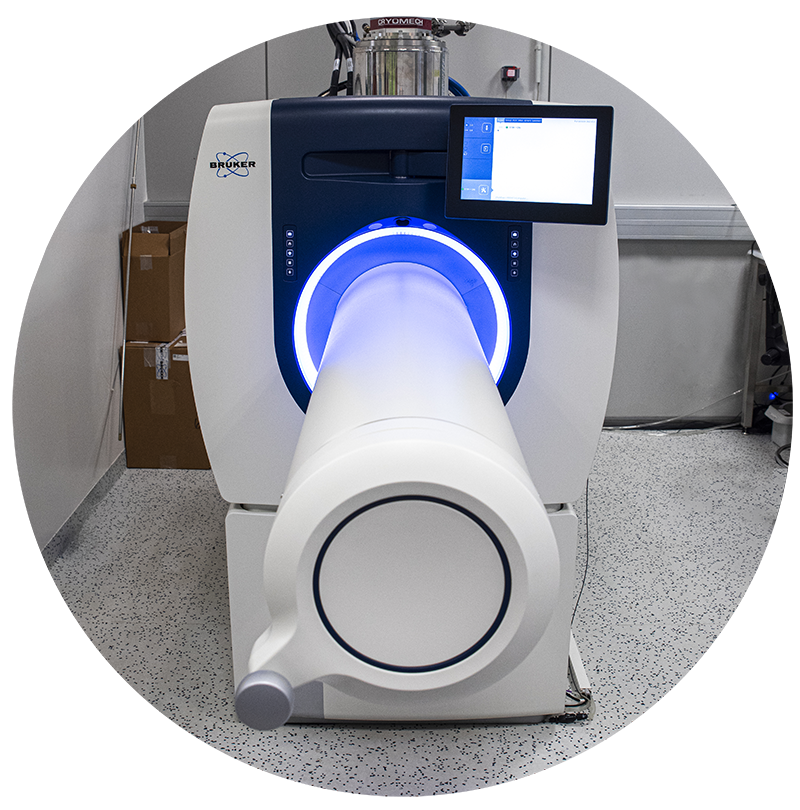
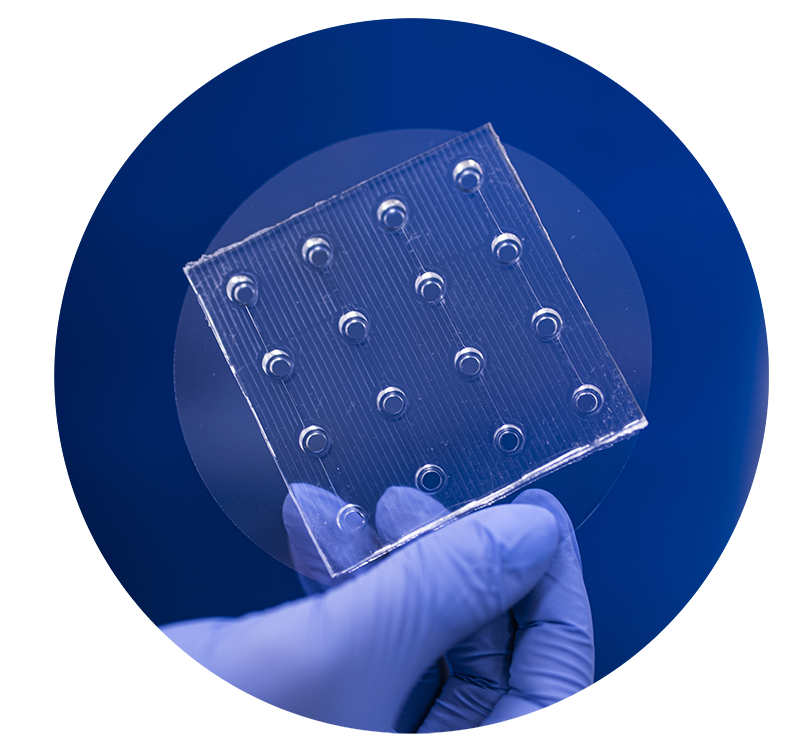
Microfluidic platforms
Microfluidic platforms, especially lab-on-a-chip devices, are revolutionizing the study of metabolism in disease by offering a compact and efficient means to analyze biological samples. These chips integrate intricate networks of microchannels and chambers, allowing for precise control and manipulation of small fluid volumes. A significant advantage of these platforms is their ability to accommodate multiple samples simultaneously for a single measurement, such as Magnetic Resonance Imaging (MRI). This unique design not only enhances throughput and reduces sample consumption but also enables high-resolution and multiplexed metabolic analysis. Consequently, microfluidic chips are becoming indispensable tools in biomedical research, providing valuable insights into disease mechanisms and facilitating the identification of metabolic biomarkers.
Metabolomics
Metabolomics is the comprehensive study of metabolites, the small molecules involved in metabolic processes within a biological system. Analysis of metabolites using NMR spectroscopy reveals insights into the biochemical activities occurring in cells, tissues, or organisms. This field is particularly useful for biomarker identification associated with particular diseases. Identifying these biomarkers can improve disease diagnosis, prognosis, and the development of personalized treatment strategies.
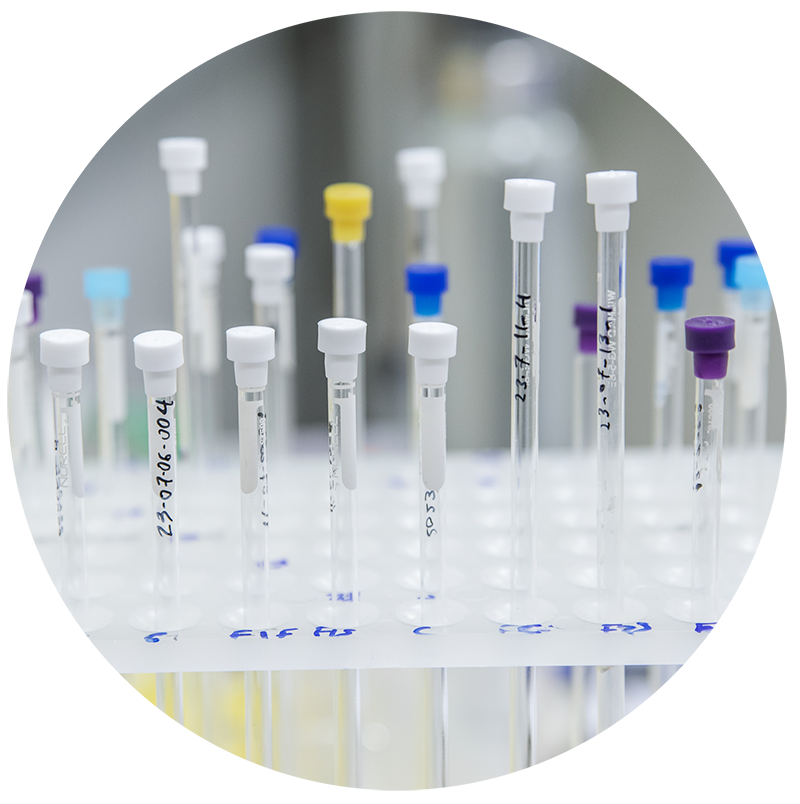
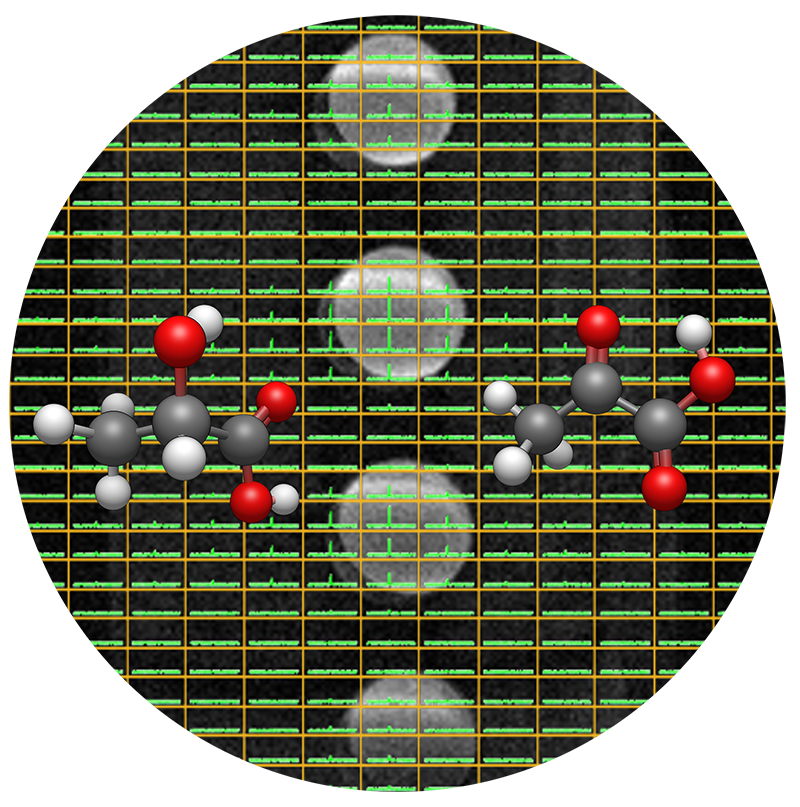
Computer Modelling of biological systems
By using the law of mass action, it is possible to model different cellular processes in a deterministic manner, and hence, describe these systems at a population level. These models can describe a wide range of processes, from gene expression and regulation to enzyme kinetics and particles movements thanks to membrane transporters.
STAFF
All group members:
PROJECTS
| INTERNATIONAL PROJETCS | FINANCER | PI |
|---|---|---|
| BLOC · Benchtop NMR for Lab-on-Chip (2020 – 2022) | European Commission, FET OPEN | Irene Marco |
| NATIONAL PROJECTS | FINANCER | PI |
|---|---|---|
| Analisis metabolico en tiempo real de modelos de cultivo de celulas 3d de la enfermedad del higado graso no alcoholico: organos en un chip y resonancia magnetica nuclear (2020 – 2021) | MINECO, Acciones Dinamización Europa Investigación/EIN2020-112209 | Irene Marco |
| Junior Leader Programe (2018 – 2022) | Obra Social La Caixa, Junior Leader Program | Irene Marco |
PUBLICATIONS
For a list of publications prior to joining IBEC, visit the Google Scholar.
NEWS
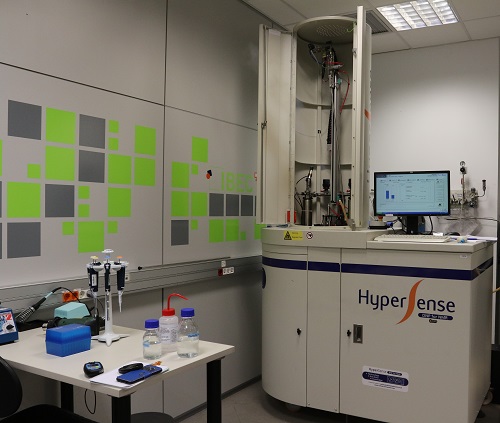
Unique resonance technology in Spain to study cellular metabolism, hosted by IBEC
A Dynamic Nuclear Polarisation (DNP) Polariser for Nuclear Magnetic Resonance (NMR) has been recently installed at IBEC, being the only one in operation in Spain, and among the few ones existing in Europe. This equipment can improve up to 10000 folds the signal compared to a conventional NMR procedure and allows for the study of cellular metabolism in real time.
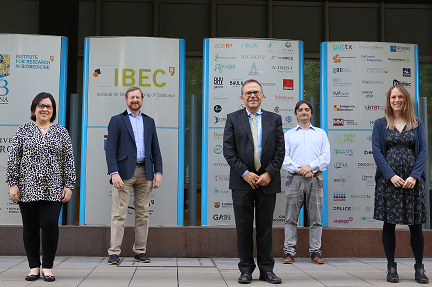
Vitala is born, a spin-off of IBEC that offers innovative and more ethical solutions for health research
Vitala Technologies, a biotechnology-based company born in the Institute for Bioengineering of Catalonia (IBEC), will offer innovative solutions for the analysis of drugs during their development, as well as the possibility to know in advance and in a personalized way, what will be the response of a patient to a certain treatment.
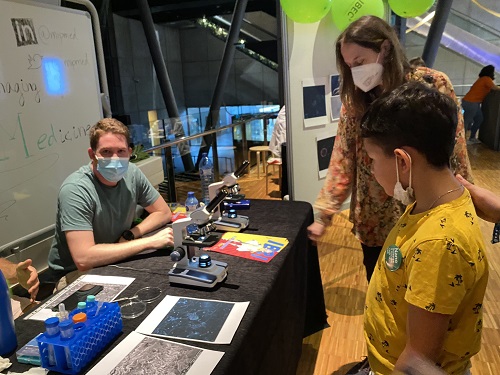
IBEC researchers participate in the “European Researchers’ Night”
Last Friday, September 24, the “European Researchers’ Night” took place, an event that is held on a European scale in more than 300 cities in 30 different countries. The objective of this event is to publicize the diversity of science and its impact on the daily lives of citizens in a close and inspiring way. For yet another year, IBEC has not wanted to miss it and has been present at various activities.

Irene Marco and the Chemical Biology programme
Irene Marco-Rius, junior group leader at IBEC and doctor by the University of Cambridge is interviewed in “el Periódico” for her participation in “la Caixa” Foundation-BIST Chemical Biology programme.

The new “la Caixa” Foundation – BIST Chemical Biology Programme launches a hub in Barcelona for the design of new drugs
The “la Caixa” Foundation and BIST are creating a chemical biology programme to promote two new cutting-edge research groups at IBEC and IRB (both centres are members of BIST). The initiative aims to attract talent from the field of chemical biology, and to create an ecosystem that fosters research excellence in improving health.
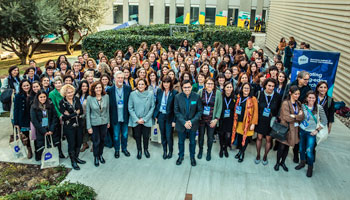
Great success of the 100tífiques event
Last February 11, on the occasion of the International Day of Women and Girls in Science, more than 20 IBEC researchers gave talks in different schools around Catalonia. The objective of the meetings between researchers and students was to bring science closer to schools and to vindicate female scientific talent.
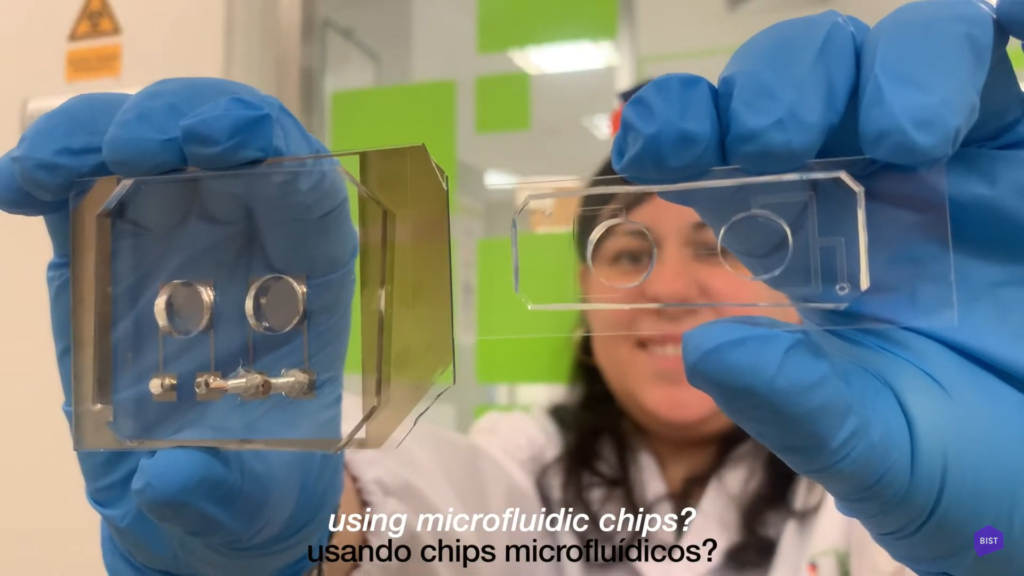
IBEC researchers awarded for their communication activities
Several researchers from IBEC have been awarded for their quality in spreading the word of bioengineering. From scientific talks, to videos and posters, IBEC scientists and engineers show their talent inside, but also, outside the lab.
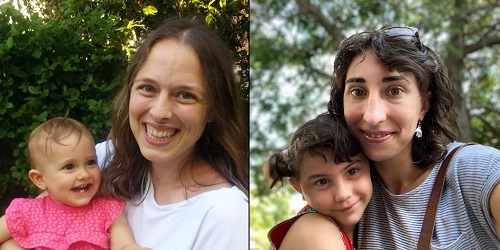
Irene Marco and Núria Torras from IBEC winners of the second edition of “To the Mothers of Science” programme
IBEC researchers Irene Marco and Núria Torras, together with eight more female scientists, have won the programme “To the Mothers of Science” organized by The Barcelona Institute of Science and Technology (BIST), supporting them along the way to greater responsibility positions.
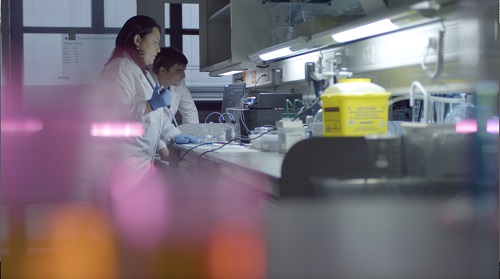
IBEC leads three new European projects
Bioengineering is a core discipline for the medicine of the future, and Europe knows that. Proof of this is that the European Union (EU) has granted during the last months the coordination of three European projects to the Institute for Bioengineering of Catalonia (IBEC) to continue combining medicine, science and technology with the aim of improving people’s health. The first one is the BRIGHTER project that is led by Professor Elena Martínez, the head of the ‘Biomimetic Systems for Cell Engineering’ group. The EU has contributed to this initiative that will be used by the consortium partners to develop an innovative high resolution 3D bioprinting technology able to fabricate 3D cell culture substrates which could be useful to produce artificial organs in the future.
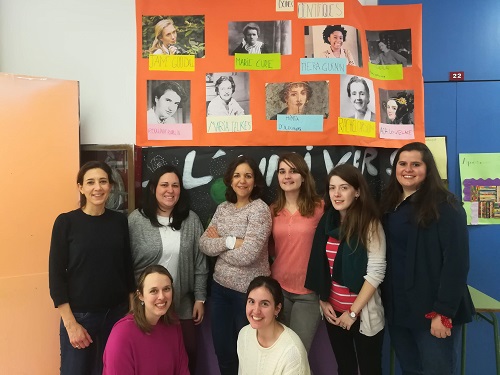
IBEC emphasizes the role of women in science
Within the framework of the “International Day of Women and Girls in Science” the Institute for Bioengineering of Catalonia (IBEC) has brought their researchers to different Catalan schools to assert the role of women in science and promote STEAM careers to young people as an attractive vocation. Today February 11, IBEC has joined the initiative “100tíficas” organised by the Fundació Catalana per a la Recerca i la Innovació (FCRi), in collaboration with the Department of Education of the Generalitat de Catalunya, to claim the role of women in science.


 ibecbarcelona.eu
ibecbarcelona.eu